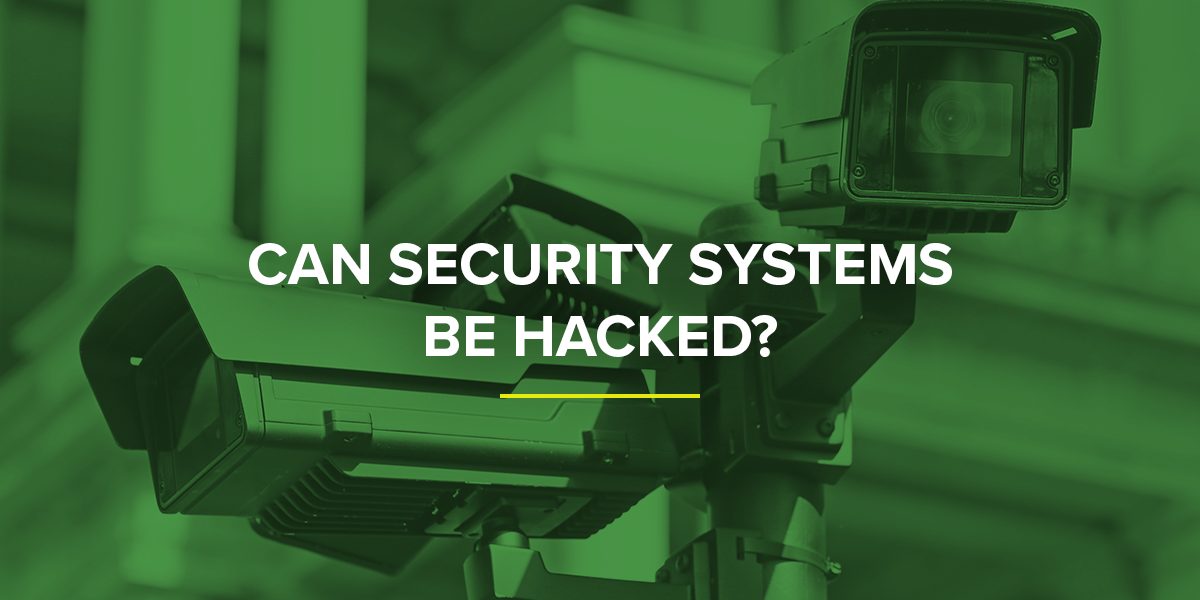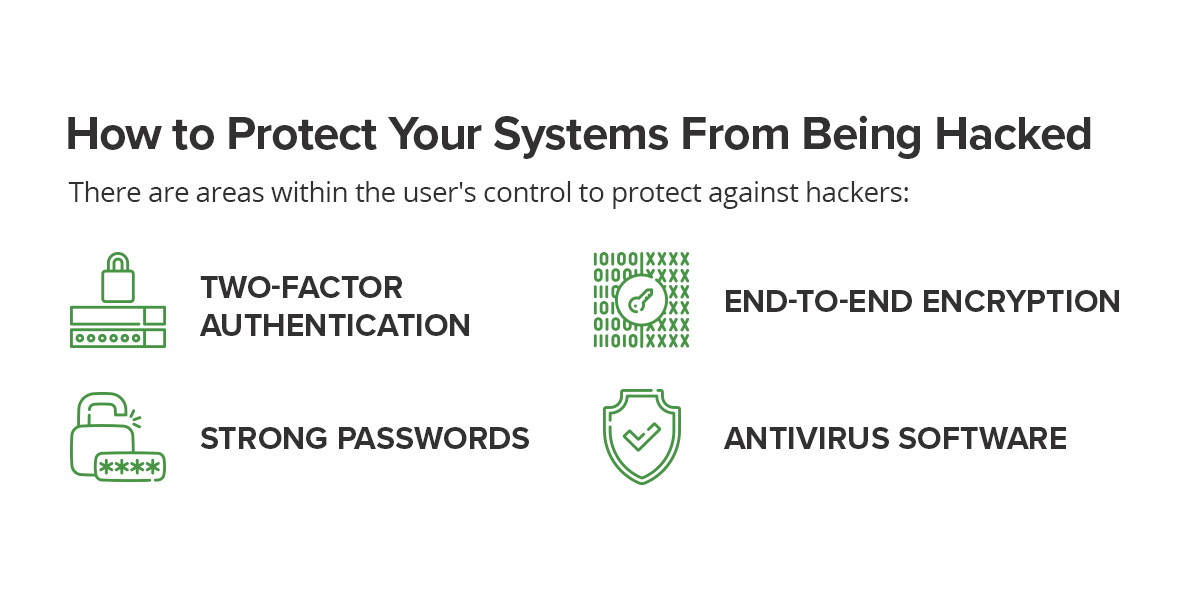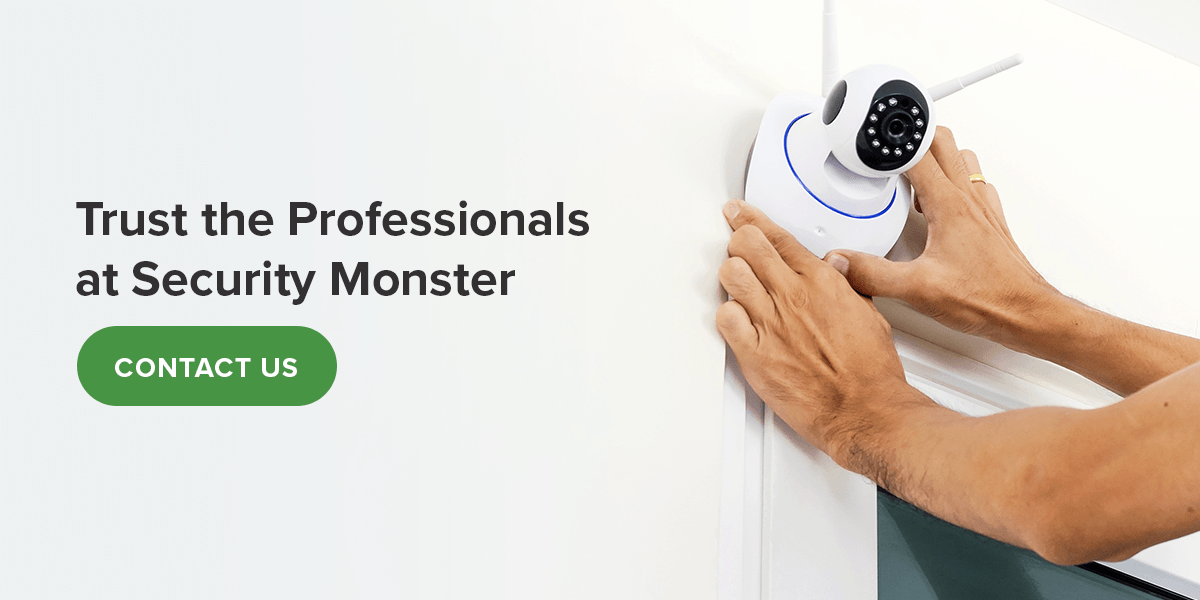Can Security Systems Be Hacked?

Table of Contents
- What Makes Security Systems Vulnerable?
- Can Security Cameras be Hacked?
- Wireless vs Wired Security Cameras
- Types of Security System Attacks
- Choosing the Right Security Camera
- How to Protect Security Systems from Being Hacked
- What to do if You Think Your Security System has Been Hacked
Hackers exploit vulnerabilities in your computer systems with the hope of infiltrating other devices in the network and gathering your data. Any device connected to the internet can be hacked, including smart security systems and smart security cameras. However, the chances of your security system being hacked are very low.
To ensure your home or commercial security system remains protected, you must consistently address vulnerabilities and implement proper security measures.
What Makes Security Systems Vulnerable to Hacking?
Smart security systems could have several vulnerabilities that hackers will exploit. The following factors make security systems vulnerable to hacking:
- Simple passwords: The security system app must have a long, complex password unique to the account. Avoid using personal information and passwords with eight or fewer characters. These factors make the password easier for hackers to guess. When the same password is used on several or all accounts, a hacker with access to one account can quickly access multiple accounts.
- Lack of authentication: Advanced authentication provides an extra layer of security. Without it, your password is the only thing keeping hackers from gaining access. If hackers manage to crack your password, the two-factor authentication ensures they can’t access the camera without an additional passcode. Not all camera companies offer two-factor authentication, so it is vital to do your research.
- Data breaches: Camera companies can sometimes undergo data breaches where a hacker steals users’ credentials after breaking into its system. Hackers often share the stolen usernames and passwords online, which others can attempt to use on different company systems through a technique called “credential stuffing.” Companies can implement two-factor authentication to keep users protected in the aftermath of a large breach.
- Unencrypted data: Lack of encryption means both the user and the receiver can view the data without exchanging a secret key or handshake. Choose security systems with built-in, end-to-end encryption. This way, an exchange is needed to make the data visible on both ends.
- Lost or stolen devices: Users with a security system app on their mobile phones or tablets must keep track of their devices. A lost device can allow easy access to your camera monitoring. Additionally, specific security cameras that don’t require Wi-Fi can only be hacked if they’re physically stolen from your home or business.
Can Security Cameras Be Hacked?
Most security equipment such as keypads, hubs, sensors and detectors operate on a wireless network separate from your home’s Wi-Fi. Wireless protocols connect all system components and link them to your monitoring system, making your security nearly impossible to hack.
So, can home cameras be hacked? Home security cameras pose a unique concern when it comes to protecting your property.
Wireless vs. Wired Security Cameras
Home security cameras can be hacked since they operate disparately from all other security devices. They use your home’s less secure internet network, meaning your wireless security cameras can be hacked and your data compromised. You’ll need to take extra precautions to improve your safety when you choose wireless. Wireless security cameras can pose an even higher risk if you’re running an open internet network.
Can wired security cameras be hacked? Wired CCTV cameras can be hacked since they’re still connected to your local internet and an electrical power source. However, wired devices are typically more challenging to hack due to the closed network.
Hackers can also target your electrical system to disable both wireless and wired cameras. While this does not grant them access to your camera feed, it can lead to serious security risks. Consider a middle-ground approach with a camera that can operate on the internet or a proper battery backup.
Types of Security System Attacks
In today’s data-driven world, hackers have developed various methods to target organizations and individuals — while many have grown antiquated due to technological advancements, everyone must be vigilant with their internet usage and devices. So, how do hacks happen?
Hackers can use the following methods to gain access to your data:
- Phishing: Hackers commonly use phishing emails or text messages to ask for people’s usernames and passwords. Through social engineering, the hackers impersonate legitimate websites and invite people to click phishing links leading to fake website login pages.
- Programming attacks: Programming-based hacks require hackers to perform a thorough evaluation of a security system’s vulnerabilities, the goal being to gain full administrative privileges. These attacks are much more challenging than phishing, though programming is still a prominent tactic among hackers.
- Credential stuffing: This technique uses other data breaches to guess a users’ credentials on their security system. When a hacker breaks into a company’s system, they can share the uncovered usernames and passwords online for anyone to use. Since many people choose the same password for all or most accounts, one company’s data breach could allow hackers to access many other accounts.
- Brute-force attacks: Attacks can occur when a hacker finds access after repeated attempts to guess the user’s password. Brute-force hacks have essentially become obsolete since many online accounts lock access after a certain number of tries and may even alert the user.
- Man-in-the-middle attacks: This type of programming-based attack requires a hacker to intercept the sender and the receiver during user login attempts. By “listening” to login credentials, a hacker can capture data packets and use the uncovered passwords to access users’ data.
- Physical access: If a hacker has physical access to a device for a prolonged period, there is little a user can do to prevent them from gaining access to sensitive information. Lost or stolen mobile phones, tablets and computers are a big risk to your data.
Choosing the Right Security Camera
Whether you choose a DIY security system or professionally installed devices, the safeguards you implement will determine how susceptible it is to hacking. Systems with critical security flaws — like unencrypted data or a lack of authentication — are much easier for hackers to breach.
Strong passwords, two-factor authentication and other security measures can significantly reduce the risk of security system attacks. However, some security cameras are sold without proper security measures in place. Cameras sold at Amazon, Walmart and other retailers may undergo little or no quality control — an ideal target for hackers. This factor leads many to wonder, can Ring cameras be hacked?
Ring is Amazon’s top smart home security brand, consisting of its Ring Alarm security system and a wide array of Ring cameras. In 2019, a data breach exposed user credentials to hackers who then used them to breach local internet networks and even gain access to live video feeds. Ring quickly responded to the violation with mandated two-factor authentication, end-to-end encryption and hidden privacy zones for sensitive areas. While Ring has launched several privacy improvements to their products, they are not the only brand of security cameras that have been sold with vulnerabilities.
Home and business owners with limited tech knowledge may face more challenges if they use DIY security. Research the products you are purchasing and ensure they come from a brand you trust before bringing them into your home or business. Professional technicians pair you with safe security equipment and the best safeguards for your unique property.

How to Protect Your Security Systems From Being Hacked
There are areas within the user’s control to protect against hackers:
- Two-factor authentication: In addition to your username and password, two-factor authentication requires an additional passcode to access your account. Each time you log in, the security company sends a single-use passcode to your mobile device by text message, email, phone call or an authentication app.
- End-to-end encryption: Inspect the network traffic and user interface between the cameras and the security system app. Wireless security protocols protect against man-in-the-middle attacks by encrypting the data between the sender and the user. Wired Equivalent Privacy (WEP), while innovative for its time, is woefully out-of-date. Instead, opt for more effective protocols like WPA or WPA2.
- Strong passwords: Passwords should be long, complex and unique to the account. Avoid personally identifiable passwords containing names, birthdates and other guessable information. A string of random characters with numbers and irregular capitalization is recommended. If you suspect your password has been compromised, change it immediately.
- Antivirus software: Antivirus software typically includes protection against phishing. Since most security cameras use your local wireless network, antivirus software is essential for keeping out intruders.
What to Do if You Think Your Security System Has Been Hacked
Identify whether your security system has been hacked so that you can take action. While some suspicious activities could be just a glitch or system malfunction, it’s always better to be safe.
Watch out for the following red flags that a hacker could be trying to gain access to your camera:
- Unrecognizable noise coming from the camera’s speakers: Sometimes, hackers will deliberately make their presence known by speaking through your camera using its two-way communication function. Take immediate notice when you start hearing strange sounds or voices intent on conversing with whoever is at home.
- Unexpected panning or tilting of the camera: Certain cameras offer pan and tilt functions, allowing users to adjust the camera’s vantage. You may either see the camera move unexpectedly or hear an audible alert accompanying these motions.
- The camera’s LED light is on: Most indoor cameras have an LED light to indicate when the camera is being accessed remotely. The LED light is an obvious visual cue that someone is accessing your camera.
- The password to your account stops working: Most companies enforce periodic password changes to improve security. If the account stops working and you know you haven’t changed the password, a hacker has. You may receive an email stating when your password has been changed, though it is best to check your app often, too.
- Your account was accessed on an unknown device: Some home security systems have apps that track your account’s login history. Check these records to verify that the camera has been hacked and possibly identify who may be getting unauthorized access.
- Increased data traffic: Whenever a camera’s feed is accessed, there is a noticeable spike in the transmission of data. Some routers and gateways monitor data traffic and even indicate exact times when the spikes occur. Substantial data traffic or spikes at odd times of the day are worth investigating.
Trust the Professionals at Security Monster
Anything connected to the internet will have some vulnerability to hacking, but we can’t let this concern interfere with our goals to improve residential and commercial security. That’s why the professionals at Security Monster aim to provide total peace of mind, implementing the best safeguards to protect your unique security system.
Trust Security Monster to help you design and install an innovative security solution for your home and business today. With over 15 years of experience and constant technical support, we can service all your security needs in one convenient place. Learn how partnering with us can protect your systems from being hacked and contact our team of experts now, or give us a call at 541-342-8111!

